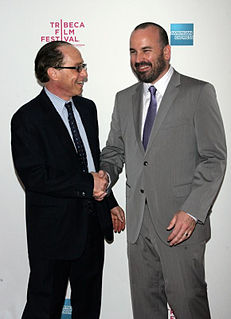A Quote by Peter Diamandis
Today, a group of 20 individuals empowered by the exponential growing technologies of AI and robotics and computers and networks and eventually nanotechnology can do what only nation states could have done before.
Related Quotes
Computers get better, faster than anything else ever. A child's PlayStation today is more powerful than a military supercomputer from 1996. But our brains are wired for a linear world. As a result, exponential trends take us by surprise. I used to teach my students that there are some things, you know, computers just aren't good at like driving a car through traffic.
Eventually, we need to have computers that work differently from the way they do today and have for the past 60-plus years. We're capturing and generating increasingly massive amounts of data, but we can't make computers that keep up with it. One of the most promising solutions is to make computers that work more the way brains work.
In 1998, I set up and directed a research group at the Nanotechnology Institute newly created in the Research Center of Karlsruhe. This allowed to offer to former post-doctoral coworkers the opportunity to develop and to progressively set up independent research activities in nanoscience and nanotechnology.



































